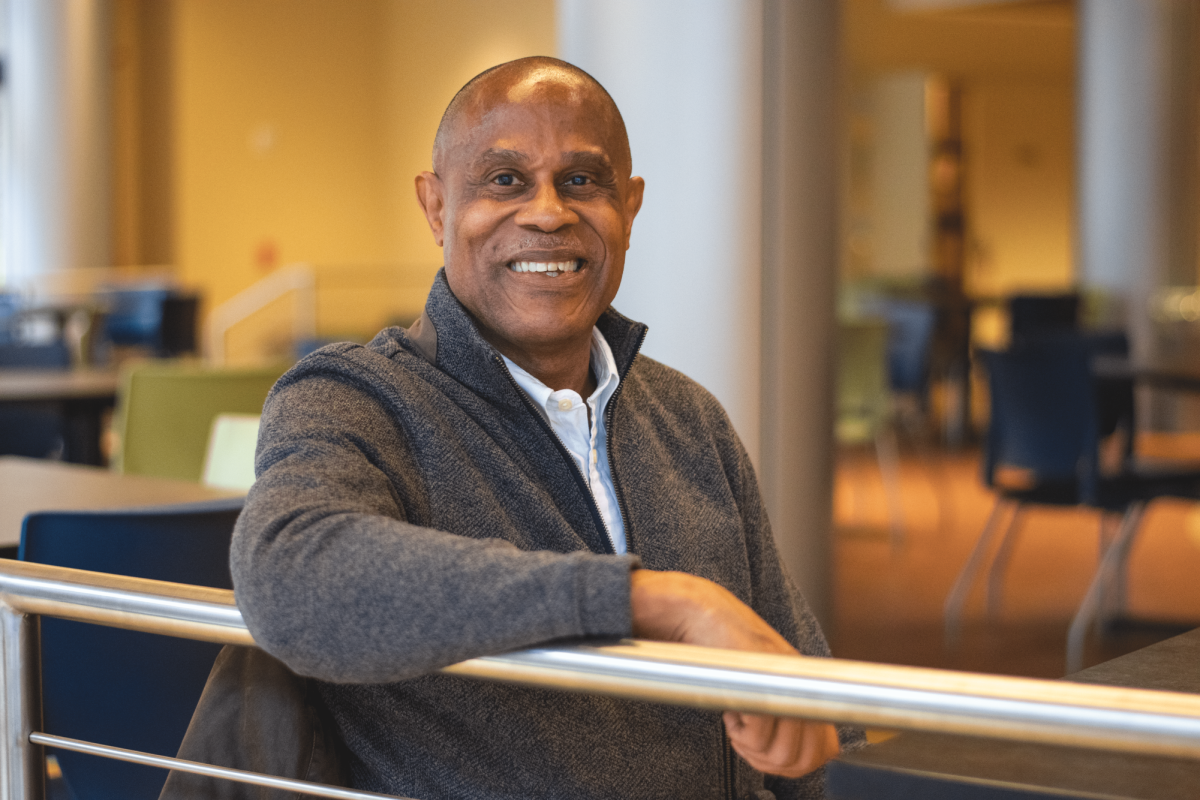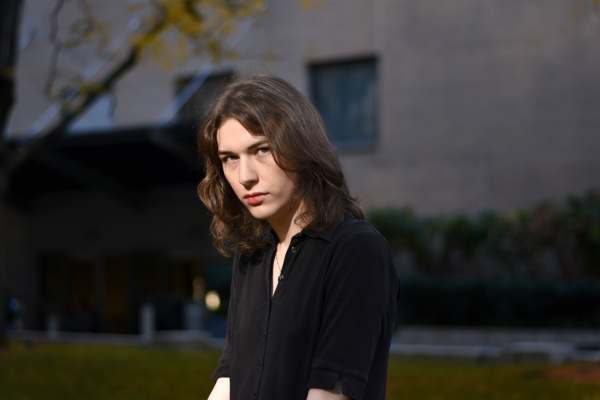Bryan Massingale doesn’t love it when people write about him. In fact, he said he hates the way profiles preserve a particular account of who he is, like a fossil of an extinct specimen trapped between layers of sediment.
“I hate these kinds of profiles because even more than the label, the profile itself becomes a fossilization of who you are in a sense, and it never quite does justice to it,” Massingale said.
Labels also can reduce people to a handful of constructed identities that can other people and perpetuate harm. Massingale is wary of the way certain words are externally imposed whether marginalized people want to adopt them or not.
“These labels are socially constructed and they never capture the fullness of our reality,” Massingale said. “At the same time, those socially constructed labels have socially destructive impacts. So even if we do not like the labels gay, queer, trans, whatever, there are very powerful forces in our society that are going to use those identities that cause us great harm.”
Despite these feelings around labels, Massingale embraces the particularity of his experience as a Black gay Catholic priest and lifelong educator. He said he wants to act as a pioneer to encourage others who might continue to bring something new into the world.
“What do we stand for? Who are we? I think that is the question that the country really needs to wrestle with and is wrestling with but does not know how to wrestle with it because we have very few forums where those kinds of deep value questions can be raised, which is where I think Jesuit education comes to mind.” Bryan Massingale
“Is it a ‘both and’ reality that, am I a Black priest? Yes. Am I only a Black priest? No. But I do think it is important to be visible as a Black priest precisely because of what Blackness means in our society,” Massingale said.
On Saturday, Massingale’s book “Racial Justice and the Catholic Church” was purged from the U.S. Naval Academy’s library alongside hundreds of other books deemed to be a part of diversity, equity and inclusion policies. As President Donald Trump’s administration attacks diverse voices on federal monuments and websites — and infringes upon the civil liberties of activists and immigrants — Massingale said Americans need to reckon with deep questions about their country’s values.
“I think we need to get beyond policy debates and disagreements and say what is really at stake here,” Massingale said. “What do we stand for? Who are we? I think that is the question that the country really needs to wrestle with and is wrestling with but does not know how to wrestle with it because we have very few forums where those kinds of deep value questions can be raised, which is where I think Jesuit education comes to mind.”
On a rainy Monday in late March, Massingale met with students in a stony seminar room inside Duane Library on the Rose Hill campus. It was the first class meeting after spring break, and the first since the Trump administration began detaining international students associated with campus activism. Massingale opened the floor to his students, asking how they felt. One student replied that she felt disillusioned to the extent that she was asking herself, “what’s the point?”
Later, Massingale said disillusionment can be positive or even necessary. Illusions, he said, prevent us from recognizing societal issues. In his class, he and his students take their disillusionment as a challenge to fight for change.
He sees the synthesis of faith and justice in Ignatian values not just as an application of Catholic teachings, but as an essential part of the Gospel.
“If disillusionment leads to a sense of defeat or despair, then disillusionment is counterproductive. But disillusionment is a way of saying, ‘wait a minute, my country, my church, my institutions are not what I thought they were.’ Now can that spur me to take action to make them be what they ought to be?” Massingale said.
For Massingale, shedding harmful illusions and spurring people to action is the work of a Jesuit education. He sees the synthesis of faith and justice in Ignatian values not just as an application of Catholic teachings, but as an essential part of the Gospel. He said that the role of Jesuit institutions and educators intertwines the interrogation of faith and justice as two practices and ideals, in order to discover their deep connection.
Massingale speaks with the passion of a preacher, the depth of a professor and the candor of a friend. He talks in structured depth, as if delivering a speech, but cracks jokes as well. He does not keep a shell around his emotions either and will be honest if a memory is painful for him to recall.
While Massingale admires Ignatian values and has spent much of his life walking alongside Jesuits, he himself is not a member of the Society of Jesus. Massingale said maybe he would have been, had the Society asked him to join.
As an undergraduate at Marquette University, Massingale was an exceptional student with a clear path to becoming a man of the cloth.
“I was a daily mass-goer. I was a leader in campus ministry retreats, majored in theology and philosophy, had a four point average in it all. I mean, I had priestly vocations stamped on my forehead in neon lights,” Massingale said.
But he was not invited to become a Jesuit. Massingale planned to attend seminary school and work toward priesthood instead. He recalled a Jesuit telling him, “I am sure if you had what it took to be a Jesuit we would have asked you,” when he was 21 years old.
“I thought about that and I said, well, wait a minute, what am I lacking? Especially because I had, you know, white classmates who did not have all of that going on for them and they were asked. And I realized that what he meant was that it was because I was Black,” Massingale said.
Massingale realized that the institutions he looked up to, like the Catholic Church and the Society of Jesus, were also guilty of the sin of racism. This moment of disillusionment is still a painful memory for Massingale four decades later, but he said standing outside of the Society of Jesus allows him to confront obstacles to racial justice.
“There are times when even the Society of Jesus falls short and it needs to be challenged to live up to its aspirations, and I think sometimes those who are outside the Society have a freedom to raise those questions,” Massingale said.
As a professor, priest and activist, Massingale uses inquiry to challenge and reveal oppression. Massingale said that he is made afraid by the seeming impunity of the Trump administration’s targeting of activists and academics, but that his faith gives him the courage to struggle.
“Courage is doing what we believe is right despite being afraid,” Massingale said. “That’s what courage is all about, it is not letting our fear control us. It’s being motivated by something that’s deeper than fear. And that’s love.”



Olivia Williams • Apr 10, 2025 at 11:59 pm
Really enjoyed reading a well written article. Thanks Cuz